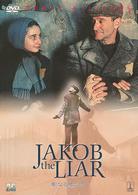Description
The study and practice of end-of-life care has seen an increasing understanding of the need for care that integrates clinical, psychosocial, spiritual, cultural, and ethical expertise. Yet, no one existing volume pulls together perspectives from a diverse array of religions with ethical dilemmas and clinical problems in view. Safe Passage coaches clinicians and others on the front lines of care on understanding how to incorporate different traditions of thinking into the most difficult of moments around the end of life. The book is structured around five major moments of realization - when disease progresses, when emergencies happen, when dying will be a long process, the time of death, and when grieving begins. Each decision point is introduced with a research summary and an extensive case example that describes disease processes, health care delivery possibilities, and the end-of-life dilemmas involved so as to apply across the varying cultural, socio-economic, and spiritual contexts. The case example is followed by a clinical commentary written by a palliative care specialist, an ethical commentary written by an ethicist, and three short essays written by religious thinkers of different traditions. Each situation is concluded by remarks on potential approaches that respect religious and spiritual beliefs, values, and practices at the end of life across all contexts, and a bibliography. The five decision points are bookended by an introductory section that explores broad historical and cultural perspectives and a conclusion section that summarizes the book and provides guidance for further reading and study.
Table of Contents
I. POEM - "Autumn Passage"II. Palliative and End-of-life Care for Safe PassageIntroduction: On Safe PassageChapter 1: Historical Perspectives on End-of-Life Care in Global Context: United StatesChapter 2: Historical Perspectives on End-of-Life Care in Global Context: AfricaChapter 3: Historical Perspectives on End-of-Life Care in Global Context: EuropeChapter 4: Historical Perspectives on End-of-Life Care in Global Context: Indian SubcontinentChapter 5: Historical Perspectives on End-of-Life Care in Global Context: Latin AmericaChapter 6: Historical Perspectives on End-of-Life Care in Global Context: Middle East and North AfricaChapter 7: Historical Perspectives on End-of-Life Care in Global Context: Pacific Asia Chapter 8: Overview of Health Care Delivery Systems and Workforces in End-of Life Care in the Global North and SouthChapter 9: Spiritual Care of Patients and Families at the End of Life III. Spiritual Beliefs and Practices for a Good DeathIntroduction: On a Good DeathChapter 10: When Emergencies HappenCaseThe Clinical IssuesThe Ethical IssuesThe African Independent and Pentecostal Churches ResponseThe Buddhist ResponseThe Confucian ResponseThe Evangelical Christian ResponseThe Hindu ResponseThe Indigenous ResponseThe Jewish ResponseThe Mainline Protestant Christian ResponseThe Muslim - Shi'a - ResponseThe Muslim - Sunni - ResponseThe Roman Catholic ResponseThe Sikh ResponseThe Unitarian Universalist ResponseChapter 11: When Disease ProgressesCaseThe Clinical IssuesThe Ethical IssuesThe African Independent and Pentecostal Churches ResponseThe Buddhist ResponseThe Confucian ResponseThe Evangelical Christian ResponseThe Hindu ResponseThe Indigenous ResponseThe Jewish ResponseThe Mainline Protestant Christian ResponseThe Shi'a Muslim ResponseThe Sunni Muslim ResponseThe Roman Catholic ResponseThe Sikh ResponseThe Unitarian Universalist ResponseChapter 12: When Dying May be a Long ProcessCaseThe Clinical IssuesThe Ethical IssuesThe African Independent and Pentecostal Churches ResponseThe Buddhist ResponseThe Confucian ResponseThe Evangelical Christian ResponseThe Hindu ResponseThe Indigenous ResponseThe Jewish ResponseThe Mainline Protestant Christian ResponseThe Shi'a Muslim ResponseThe Sunni Muslim ResponseThe Roman Catholic ResponseThe Sikh ResponseThe Unitarian Universalist ResponseChapter 13: At the Time of DeathCaseThe Clinical IssuesThe Ethical IssuesThe African Independent and Pentecostal Churches ResponseThe Buddhist ResponseThe Confucian ResponseThe Evangelical Christian ResponseThe Hindu ResponseThe Indigenous ResponseThe Jewish ResponseThe Mainline Protestant Christian ResponseThe Shi'a Muslim ResponseThe Sunni Muslim ResponseThe Roman Catholic ResponseThe Sikh ResponseThe Unitarian Universalist ResponseChapter 14: After Death CaseThe Clinical IssuesThe Ethical IssuesThe African Independent and Pentecostal Churches ResponseThe Buddhist ResponseThe Confucian ResponseThe Evangelical Christian ResponseThe Hindu ResponseThe Indigenous ResponseThe Jewish ResponseThe Mainline Protestant Christian ResponseThe Shi'a Muslim ResponseThe Sunni Muslim ResponseThe Roman Catholic ResponseThe Sikh ResponseThe Unitarian Universalist ResponseIV. CODA








